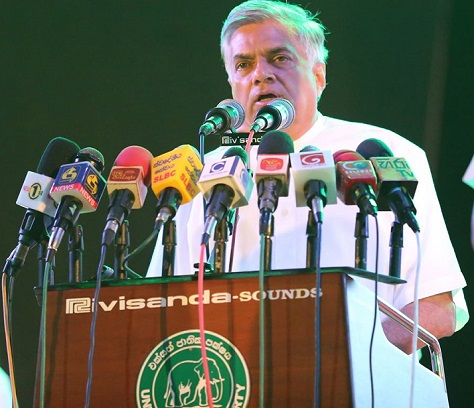Mahinda Rajapaksa, the former president who ended Sri Lanka’s civil war, was pushed out of office in January when his decision to call a presidential election two years early backfired.![]()
In Monday’s parliamentary elections, however, Rajapaksa hoped to win a comeback as prime minister — especially as his successor, one-time ally and former health minister Maithripala Sirisena, struggles to rebalance power away from the presidency and toward the unicameral Sri Lankan parliament.
Rajapaksa appears to have failed, and even before full results were announced, he had conceded defeat on Tuesday morning, handing the once-powerful president his second electoral defeat in eight months. Nevertheless, he appeared to have won election as a member of parliament, where he will continue to attempt to block Sirisena.
Sirisena, who won January’s election as the candidate of the opposition coalition, struggled to pass legislation through Sri Lanka’s parliament following his stunning victory earlier this year. Sirisena’s attempts at pushing through a wishlist of reforms in his first 100 days hit several roadblocks as Rajapaksa supporters blocked many Sirisena priorities, including changes to the country’s election law, though Sirisena has already been successful in reducing some presidential powers and restoring a two-term presidential limit. Faced with gridlock for deeper political reforms, Sirisena dissolved Sri Lanka’s parliament in June and called the August 17 elections nearly half a year early, eager to win a fresh mandate for his attempts to introduce new checks and balances on Sri Lanka’s political system.
* * * * *
RELATED: Sirisena easily wins Sri Lankan presidency
RELATED: Tumultuous election a test for Sri Lankan democracy
* * * * *
Most immediately, the parliamentary election has four major implications: Continue reading Rajapaksa concedes defeat in pivotal Sri Lankan poll
